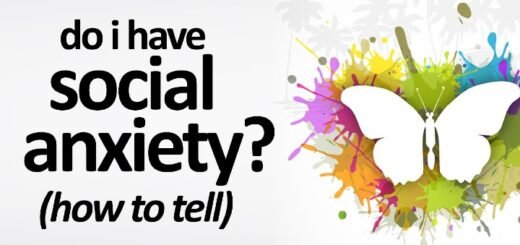Navigating Social Phobia: Family Support Strategies in NZ
Navigating social phobia can be a challenging journey for families in New Zealand, where understanding and support are crucial. Social phobia, also known as social anxiety disorder, affects many Kiwi children and adolescents, leading to significant distress in social situations. Recognizing the signs and symptoms of social phobia_1 is the first step towards finding the right resources and support networks available to help families cope.
In New Zealand, various organizations and online resources offer guidance for families dealing with social phobia_1. One valuable resource is the [Understanding Social Phobia in Kiwi Children: A Guide](https://socialphobia.org.nz/understanding-social-phobia-in-kiwi-children-a-guide/), which provides insights into the condition and practical advice for parents. By leveraging these resources, families can equip themselves with the knowledge and support needed to help their children navigate the complexities of social phobia.
Understanding Social Phobia: An Overview
Social phobia, also known as social anxiety disorder, is a condition that significantly impacts individuals’ lives, particularly their interactions and relationships. In New Zealand, this condition is increasingly recognized, and resources are becoming more accessible for those affected. Understanding social phobia is the first step for families to provide support and encouragement to their loved ones.
Individuals with social phobia often experience intense fear in social situations, leading to avoidance behaviors that can severely limit their daily activities. This can include fears of being judged, embarrassed, or humiliated in front of others. The New Zealand mental health landscape offers several resources that can help families understand social phobia better. The website socialphobia.org.nz provides a wealth of information, including symptoms, causes, and treatment options that are crucial for families navigating this condition.
Recognizing the signs of social phobia early can help families take proactive steps in seeking help. Symptoms can include excessive worry about social situations, physical symptoms like sweating and trembling, and a strong desire to avoid social interactions. By having open discussions about these symptoms, families can create a supportive environment that encourages individuals to seek help.
Local Support Groups and Their Impact
Support groups play a vital role for individuals with social phobia and their families. In New Zealand, various organizations facilitate support groups aimed at fostering community and understanding among those affected by social anxiety. These groups offer a safe space for individuals to share their experiences and coping strategies.
For families, joining these support groups can be immensely beneficial. They provide not only emotional support but also practical strategies for managing social phobia. Many support groups in New Zealand are led by trained facilitators who understand the complexities of social anxiety. Families can learn how to approach conversations about social phobia and create a supportive home environment.
One notable resource is the Social Phobia Network of New Zealand, which offers a directory of local support groups. Engaging with these communities can also help families connect with others facing similar challenges, reducing feelings of isolation.
Therapeutic Approaches Available in New Zealand
Therapy is a cornerstone of treatment for social phobia, and various therapeutic approaches are available across New Zealand. Cognitive Behavioral Therapy (CBT) is one of the most effective treatments for social anxiety, focusing on changing negative thought patterns and behaviors. Families can encourage their loved ones to seek out professional help, and many qualified therapists specialize in treating social phobia.
Additionally, exposure therapy is another effective method where individuals gradually face the situations they fear in a controlled manner. This can be particularly helpful in New Zealand, where many therapists incorporate local cultural elements into their practices, making treatment more relatable and effective.
The Social Phobia Network of New Zealand provides resources to help families find qualified mental health professionals who specialize in social phobia. Accessing these services can empower families to support their loved ones better in navigating their anxiety.
Educational Resources for Families
Education is a powerful tool in understanding and managing social phobia. Families can benefit from learning about the condition, its symptoms, and effective coping strategies. In New Zealand, there are numerous educational resources available, including workshops, seminars, and online courses designed for families dealing with social anxiety.
Websites like socialphobia.org.nz offer a variety of articles, videos, and guides that are particularly helpful for families. These resources can help families understand the experiences of individuals with social phobia and how to approach sensitive topics with empathy and care.
Moreover, schools and community organizations in New Zealand sometimes offer programs aimed at educating families about mental health issues, including social phobia. Participating in these educational opportunities can empower families to advocate for their loved ones and create a healthier environment.
Utilizing Online Resources and Helplines
In today’s digital age, online resources can be invaluable for families navigating social phobia. Many websites provide information, forums, and helplines that help individuals and their families connect with professionals and support networks. For those in New Zealand, the Social Phobia Network is an excellent starting point for accessing these resources.
Online forums can connect families with others who are experiencing similar challenges, offering a sense of community and understanding. These platforms allow families to share their experiences, ask questions, and gain insights from others who have faced social phobia directly.
Additionally, helplines provide immediate support for those in crisis. Families can encourage their loved ones to reach out to these services when they feel overwhelmed. Knowing that help is just a phone call away can make a significant difference in managing social anxiety.
Promoting Open Communication Within Families
Open communication is crucial for families supporting individuals with social phobia. Creating an environment where feelings can be expressed without judgment is essential for fostering trust and understanding. Families should encourage discussions about social anxiety, allowing their loved ones to share their fears and experiences.
Setting aside time for family meetings can help facilitate these conversations. During these meetings, family members can express their concerns and discuss potential strategies for coping with social phobia. It’s important for families to listen actively and validate their loved ones’ feelings, reinforcing that they are not alone in their struggles.
Additionally, families can work together to develop a plan that includes coping strategies and goals for facing social situations. This collaborative approach not only empowers individuals with social phobia but also strengthens family bonds.
Engaging with Community Programs and Activities
Community programs and activities can play a significant role in helping individuals with social phobia engage in social situations in a supportive environment. In New Zealand, many community organizations offer programs tailored for those dealing with anxiety. These can range from art classes to sports teams, providing opportunities for social interaction in low-pressure settings.
Families can encourage their loved ones to participate in these activities, which can help build confidence over time. Gradual exposure to social situations can reduce anxiety and foster a sense of belonging. Moreover, being part of a community can provide individuals with a support network that extends beyond their immediate family.
The Social Phobia Network of New Zealand can help families find local community programs that are inclusive and understanding of social anxiety. Engaging with these resources can significantly enhance the quality of life for individuals affected by social phobia, promoting overall well-being and social engagement.
FAQs
What is social phobia?
Social phobia, also known as social anxiety disorder, is a mental health condition characterized by an intense fear of social situations, leading to avoidance behaviors and significant distress. Individuals with social phobia often worry excessively about being judged or embarrassed in social interactions.
What resources are available for families dealing with social phobia in New Zealand?
Families in New Zealand can access a variety of resources, including counseling services, support groups, and educational materials. Organizations like Anxiety New Zealand provide valuable information and guidance for families navigating the challenges of social phobia.
How can I find support groups for social phobia in New Zealand?
Support groups can be found through mental health organizations, community centers, or online platforms. Websites like Mental Health Foundation of New Zealand often list available support groups that cater specifically to social anxiety and related conditions.
Are there any specific therapies recommended for social phobia?
Cognitive Behavioral Therapy (CBT) is widely regarded as an effective treatment for social phobia. This therapy helps individuals to challenge and change negative thought patterns and behaviors associated with social situations. Family members can also benefit from understanding and participating in treatment plans.
What role can families play in supporting someone with social phobia?
Families can play a crucial role by providing emotional support, encouraging open communication, and helping their loved ones to face social situations gradually. Being understanding and patient can significantly ease the stress associated with social phobia.
Are there online resources available for families in New Zealand?
Yes, many online resources are available, including websites dedicated to mental health education, forums for sharing experiences, and virtual support groups. Websites like the New Zealand Ministry of Health offer valuable information on mental health support available in the country.
How can I encourage someone with social phobia to seek help?
Encouraging someone with social phobia to seek help can be approached with empathy and understanding. You can gently suggest the benefits of talking to a mental health professional, share resources, and offer to accompany them to appointments if they feel anxious about going alone.
References
- New Zealand Social Phobia Society – Offers resources, support, and information for individuals and families dealing with social phobia in New Zealand.
- Mental Health Foundation of New Zealand – Provides a range of resources and support for mental health issues, including social anxiety and phobias.
- Ministry of Health New Zealand – Government health website offering information on mental health services and resources available in New Zealand.
- Anxiety New Zealand Trust – Dedicated to providing support and information for those affected by anxiety disorders, including social phobia.
- Beyond Blue – Although based in Australia, this organization offers valuable information and support resources that are relevant to families in New Zealand dealing with anxiety and depression.




